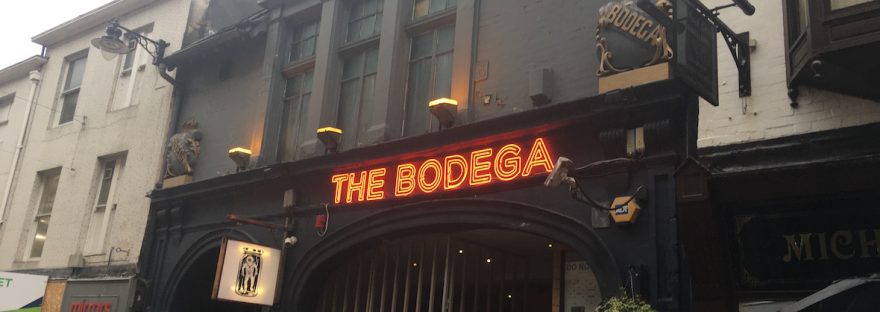Earlier in the year, I was invited to talk to Alan Clifford on BBC Radio Nottingham about my walk The Hine Hike and the buildings of Thomas Chambers Hine. The programme recently got in touch with me to see if I’d like to talk to Alan on the radio again.
They asked if I knew anything about The Bodega on Pelham Street, as it is celebrating 20 years in its current incarnation as a live music venue.
As a detective, I’m even keener than Coleen Rooney, so I couldn’t resist delving into the archives to see what I could find. This building is NOT A FOTHERGILL nor is it related to his work at all as far as I know, but I’m really interested in developing the research side of my work. Here’s what I’ve found so far…
The Bodega, now at 16 Pelham Street, but previously listed as being No. 23 was built on the site of what was previously a pub called The Durham Ox.
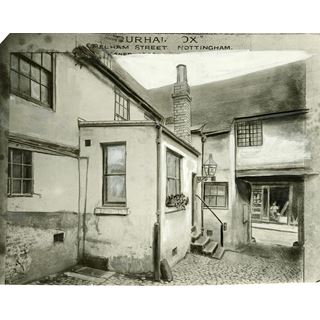
The Durham Ox was the starting point for mail coaches to Lincoln and Newark. It was also in this pub that the Lacemakers and Printers Trade Unions would hold their weekly meetings in the early Victorian era. In 1855, the Inn made the transition to a minor music hall, hosting what were called ‘Free and Easies’, with customers supplying their own entertainment. The New Amateur Musical Society performed regularly at the Durham Ox, the Garrick Society staged dramatic reading there, and it was said to be the most popular of Nottingham’s music hall pubs. By 1900 it wasn’t considered to be quite fit to continue to be licensed. It was bought by The Bodega Company in 1901 and demolished.
They employed experienced London pub architect George Dennis Martin to rebuild the pub. The result was light and elegant, a long graceful archway with a hanging light. Projecting through a hipped roof is an exaggerated dormer with a swollen pediment on top bearing the date 1902.
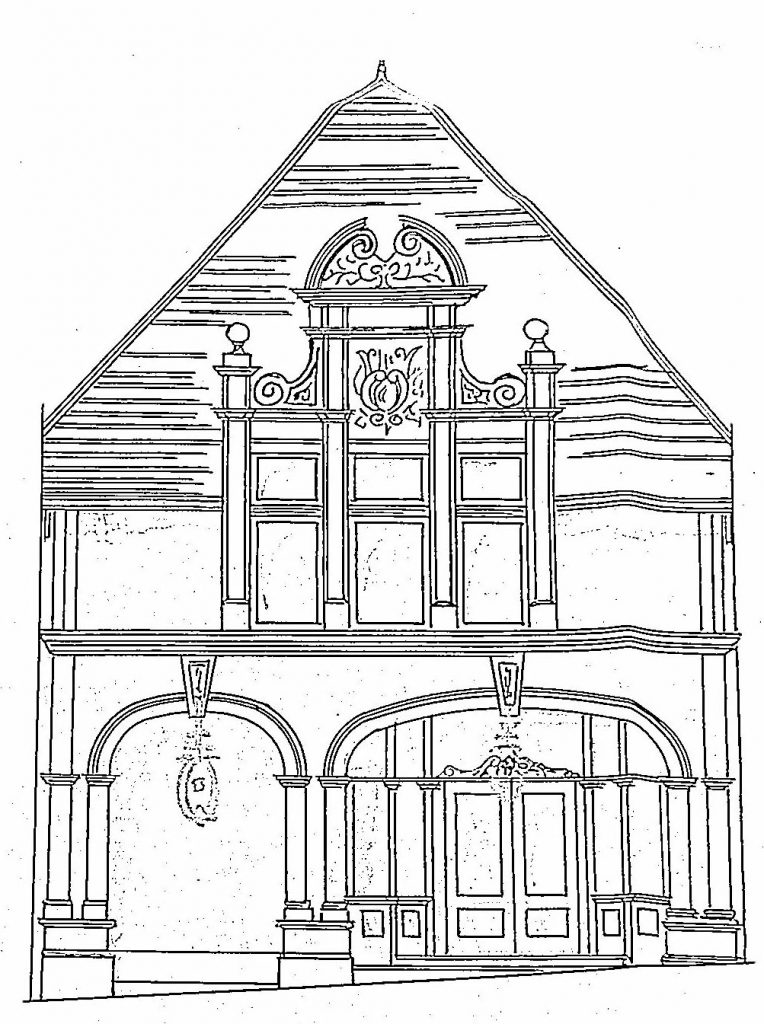
The pub was still called The Durham Ox on the plans and was labelled as having a Bodega on the ground floor and a Club Room on the first floor. The Bar was on the right hand side, and the smaller arch at the front leads to a passageway.
The Bodega Company was started by Robert Banks Lavery (b.1835-6), a Captain in the Lancashire Rifle Volunteer Corps, who resigned his commission in 1861. Lavery & Co Bodega Spanish Wine Cellars was set up as a Wine and Spirit Merchant with branches in Manchester, London and Birmingham. In 1871 the company held wholesale and bottling vaults at St Pancras and the retail business offered – “each wine clearly and distinctly marked at its price per dock glass, bottle, dozen or quarter cask. The taster pays the proportionate small price for his sample 3d to 1s 3d and is therefore fully able to arrive at an opinion of quality.”
This delightfully verbose news item sums up the “Bodega” method of doing business:
The Bodega. – Few residents in London are unaware of the existence of the wine stores of Messrs. Lavery & Co. in Glass-house Street, Regent-Street, known more similarly by its trademark, “The Bodega”, where wines of the highest qualities are retailed in the smallest quantities, either in the form of the occasional glass for luncheon, or the modest gallon for limited homesteads. This kind of enterprise, it may be said, was altogether unknown in the wine trade, and it can easily be believed that it has excited no little jealousy on the part of the old-fashioned wine merchants, to whom the infringement of the traditions of the trade could but appear to be not only heretical but mischievous. The success that has attended the enterprise of Messrs. Lavery & Co. has proved that the latter surmises were correct. In Manchester, Birmingham, Liverpool, and Glasgow, Messrs. Lavery & Co. have opened the same character of wine bar, and with no difference in the result. The visitor “tastes” as a matter of passing convenience, according to his humour, and, if so minded can order more largely upon the sample set before him. The success spoken of has suggested the establishment of similar stores in the City, and yesterday afternoon a few friends were invited to Nos. 5 and 6 Bucklersbury, to inspect the new premises taken for the purpose. The arrangements are similar to those alluded to, both at the West End and in the provinces, and there can be little doubt the good fortune which is rewarded Messrs. Lavery & Co.’s efforts elsewhere will not be denied them in the heart of the great metropolis, where such institutions have not only larger public within reach as regards the daily necessities of refreshment, but one the best calculated to avail itself of the economical opportunities which it is the special province of “The Bodega” and its branches to afford.
27 August 1874, The Shipping And Mercantile Gazette, London.
The Bodega’s offered “wines from the wood” and Champagne by the bottle. In 1876, Lavery took one of his Manchester competitors to court for using the name “Bodega”, alleging that as a name and method of doing business it was not in use before he opened The Bodega Wine Company.
Lavery seems to have done rather well for himself, he disolved his original partnership with Francis Alfred Nicholson in 1871, and in 1881 he was to be found at Gosport taking to the waves in his yawl and cutter. In 1882 the Royal Portsmouth Yacht Club noted that member Mr. Lavery “used to run their refreshment department”. In 1895, Lavery and fellow board member of the Bodega Company, Edward Talbot Wolesley (b. 1849) wind up their interests in the Mexican Tobacco Plantation Ltd and in 1896, Lavery and another Bodgea board member, John Henry Mortimer Scott become directors of the vendor syndicate for the Almaraz Tin Mining and Smelting Company (with interests in Spanish tin mines).
In 1897, The Bodega Company is incorporated and shares are sold. It is described thus: “So long established that no description is necessary in the prospectus!”
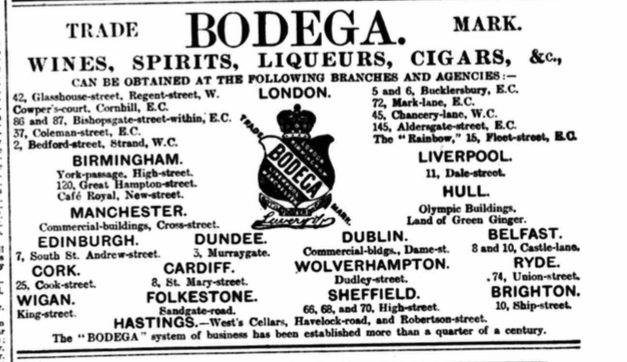
In 1901, as Edward Talbot Wolesley was buying up The Durham Ox, The Bodega Company had 10 branches in London, 3 in Birmingham and further establishments in Liverpool, Manchester, Edinburgh, Dundee, Dublin, Belfast, Cork, Cardiff, Wolverhampton, Ryde, Wigan, Folkestone, Sheffield, Brighton and Hastings. (28 branches in all).
They provided Wine, Spirits, Liquors, Cigars and even sell their own Bodega Smoking Mixture in branded tins. The Bodega Trade Mark was protected, and the shield device (which can be seen on the front of the Nottingham building), was described as having “black letters on an orange band, crossing a shield with a garter at the foot.”
In 1901, Edward Talbot Wolesley found himself being tasked with purchasing The Durham Ox, and in 1902, GD Martin’s design was realised on Pelham Street.
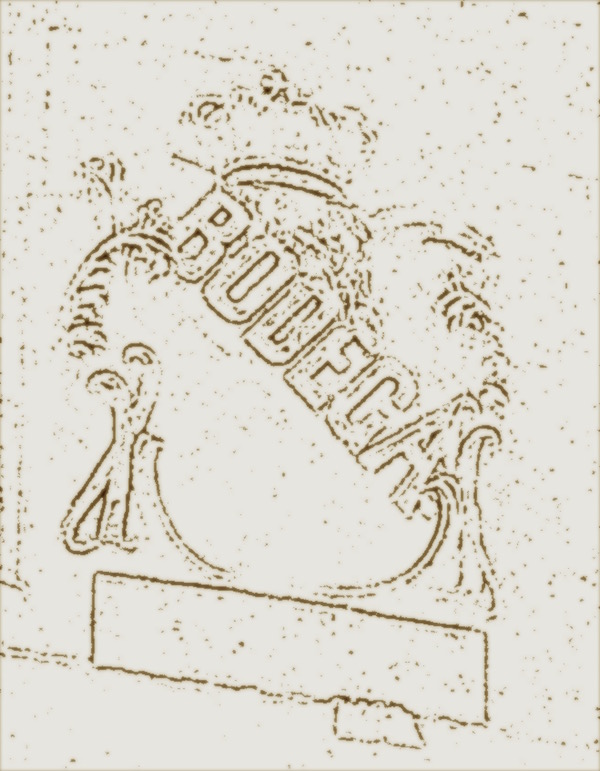
The pub was licenced on behalf of Wolesley, Chairman of The Bodega Company Limited, London, at the Nottingham Sessions. “A great improvement had been effected. The building would be more open to police supervision than ever the old house was.” The upstairs Billiard Room was sanctioned as long as no side entrance was available for use by the public. Permission was granted.
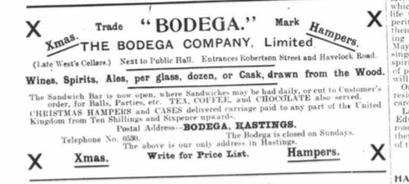
In 1903, the licence for the Nottingham Bodega passed from Edward Talbot Wolesley to Cuthbert Johnson Collingwood, a bar manager for several branches of the chain, who had become Managing Director of the Bodega Company.
In 1904 the Nottingham Evening Post reported that Wolesley, former chairman of the company, had been declared bankrupt and resigned his post in 1903 over some irregularities connected to his purchase of the Durham Ox (and other establishments around the same time). He had received £9,180 in “secret commission” which was considered to be fraud!
The Bodega is listed as a “Billiard Saloon” around 1904 and regular advertisements for staff continue to appear in local papers. By 1909 there are 34 branches of Bodega around the country.
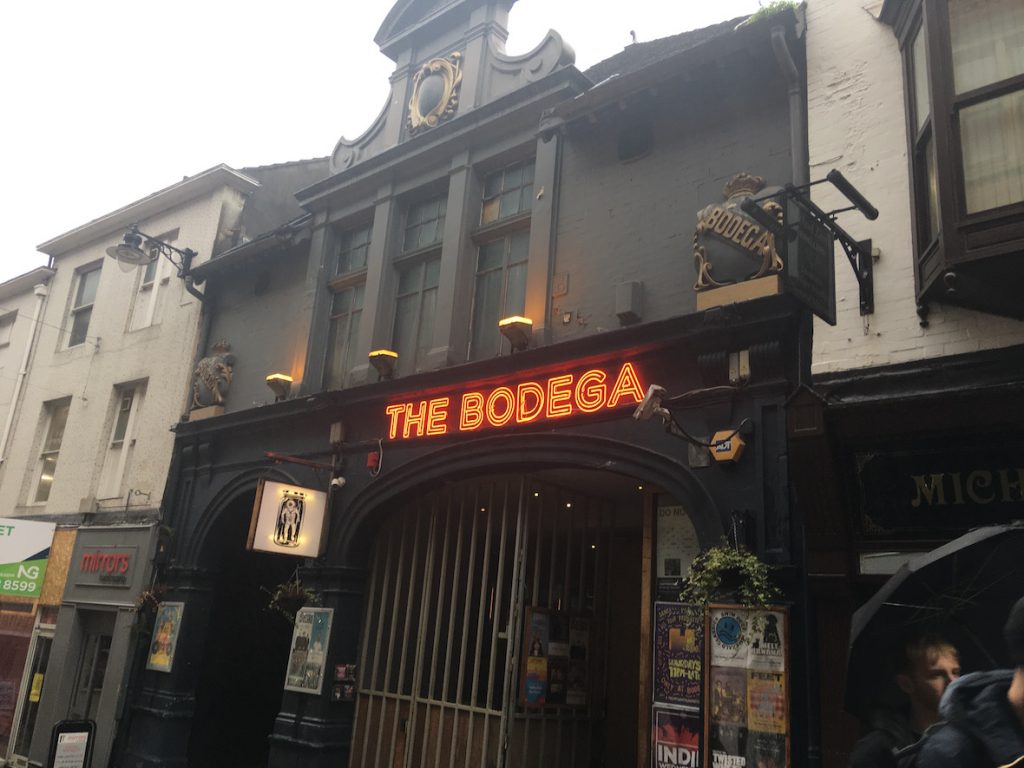
Listen out to Radio Nottingham tomorrow (8 November 2019 around 2pm) for more about The Bodega and read the next installment of this blog coming soon!
